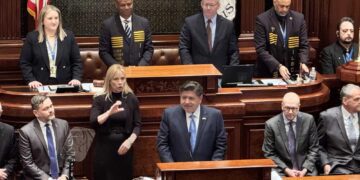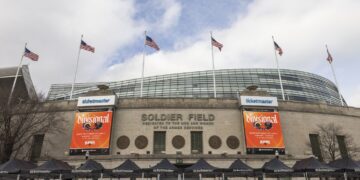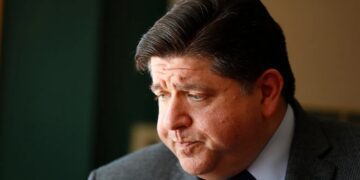NOTE: Illinois Review offers a platform for conservatives to share ideas, information and opinions. Opinion pieces are not to be considered Illinois Review's position or opinion on topics our gracious contributors submit to share with our readership. We encourage responses and comments in support or opposition.
By Andy Schlafly & Nancy Thorner -
Hydroxychloroquine is an approved medication that China, India, and various researchers have recommended for treating the Chinese coronavirus. So why can’t numerous Americans exposed to the disease obtain this or other promising treatments as people in China and India can?
Liberal regulators impede access to this medication, abbreviated as "HCQ," in the United States. Democratic Nevada Steve Sisolak issued an executive order Tuesday prohibiting use of HCQ to treat coronavirus outside of hospitals, despite Sisolak being neither a physician nor playing one on television.
And he is not the only liberal impeding treatment of coronavirus.
Dr. Anthony Fauci, a career bureaucrat who fawned support for Hillary Clinton as revealed by Wikileaks, has publicly disparaged use of HCQ for COVID-19 because he said there is merely “anecdotal” evidence of its success.
Regulators in Ohio and Texas have issued emergency orders to limit dispensing of HCQ by pharmacies to treat those exposed to the disease. Supplies of this cheap, safe medication are mysteriously being held up and many pharmacies cannot obtain it to fill prescriptions.
No one doubts that HCQ is a safe medication which has been successfully prescribed for decades in treating malaria, although some question its effectiveness for COVID-19 based on a recent small study in China where nearly everyone recovered anyway.
Here in the United States, public health bureaucrats wield enormous unchecked power to keep Americans from accessing innovative treatments. Out of frustration Congress passed the “Right to Try” law in 2018, which grants Americans limited access to medication if they are close to death anyway.
That moment can be too late for medication to really help. India has authorized HCQ for asymptomatic caregivers exposed to coronavirus.
The Food and Drug Administration (FDA) selectively impedes innovation while some of its officials seek lucrative jobs in the pharmaceutical industry. They erect regulatory hurdles fraught with enormous expense.
Pharmaceutical companies seek to maximize profits, and have no incentive to fund studies for new uses of inexpensive, unpatentable medication like HCQ. It is not surprising no large studies of using HCQ to treat a new illness such as COVID-19, because there is no way to recoup the costs of such a study.
Fortunately, the use of medication for a purpose different from the one for which it was approved is lawful and widespread, and new studies are not required. This is known as “off-label” prescribing, by which physicians have successfully helped patients for decades based on their own expertise, the needs of the patients, and reports in medical literature about promising new uses for available medication.
Despite this, the media has misleadingly criticized the prescription of HCQ for coronavirus as an “unapproved” use, and liberal officials lacking medical knowledge themselves have sided with interference rather than innovation. We are in a presidential election year, perhaps the most significant of our lifetime, and the Democrats’ playbook is to impugn and shout down virtually anything President Trump says.
Physicians face threats of being reported to their state medical boards if they dare prescribe HCQ for a coronavirus-exposed patient. In the case of a patient near death from COVID-19 in a Florida hospital, he had to implore his own physician to prescribe him HCQ over the physician’s reluctance to do so.
The patient had already said his final goodbyes to his family, and this was his last chance. If his physician had been an employee of the hospital then his hands could have been tied by the policies of the hospital, which might have been to deny treatment by HCQ.
Fortunately, the physician courageously prescribed this anti-malaria medication and the patient quickly recovered, as reported in the New York Post. But then health care providers oddly denied that his recovery was due to the medication, and insisted that he somehow recovered from near death based on his own immunity.
Such denials, disparagement, and outright regulatory interference tend to chill the discovery and use of any new treatment of a new virus. With politicized resistance to finding a cure using already-approved medication, innovative and effective responses to rapidly spreading new viruses are discouraged.
Over-regulation by the FDA also impedes the available of ventilators. Unlike cars, phones, and most other complex devices available in the free market, the FDA requires its approval before a ventilator may be obtained.
Ironically, more spare ventilators are available in communist China at this time than in the United States, and the Tesla CEO Elon Musk bought some there to donate here. On this issue, too, Democrats like New York Governor Andrew Cuomo try to blame Trump rather than the over-regulation which liberals themselves impose.
President Trump should swiftly end these impediments to treatment and recovery with executive orders prohibiting any such interference during this crisis, and beyond.







